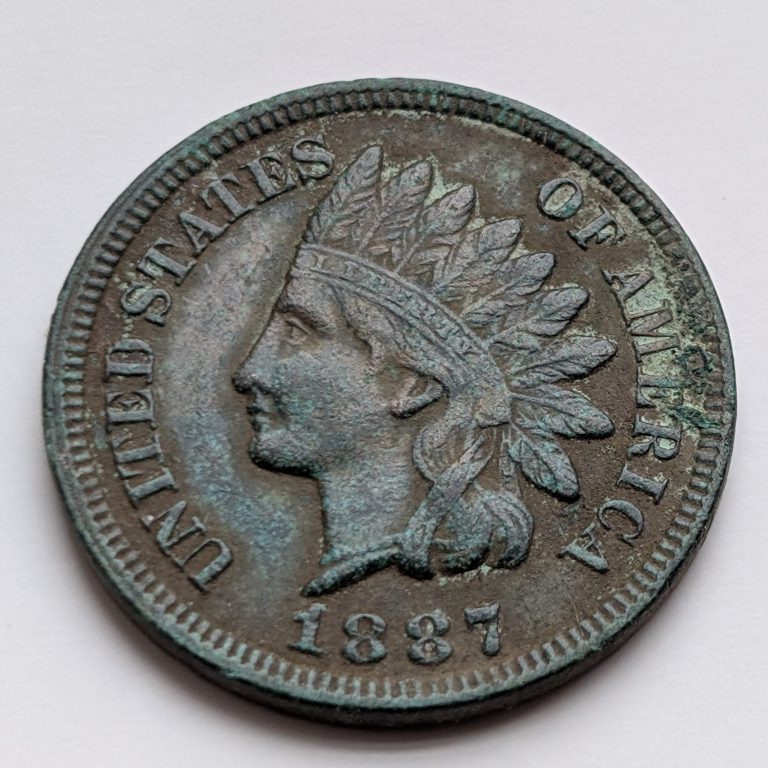Should You Clean Junk Coins?
Let’s be real. If you’ve got a pile of crusty Wheaties, common nickels, or grimy copper cents, the idea of cleaning them has probably crossed your mind. You’re not alone. Every new collector hits that moment, staring at a gross coin thinking, “Maybe I’ll just scrub this one a little…”
So should you?
That’s totally up to you. If they’re truly junk coins with nothing rare or valuable in the mix, then clean away if you feel like it. You’re not breaking any sacred coin law. But if you’re planning to sell them or use them for trade, it’s usually better to leave them as-is. Most collectors would rather see honest dirt than mystery shine.
This post breaks down what actually happens when you clean coins, when it might be okay, and how to avoid turning a learning project into a regret pile.
What Happens When You Clean a Coin?
When you clean a coin, you change its surface. That change is often permanent and almost always obvious to anyone who knows what to look for. Even gentle cleaning can remove original luster, create scratches, or leave behind telltale residue that screams “this coin has been messed with.”
The problem is, collectors and dealers see cleaning as damage. A cleaned coin usually drops in value, even if the original surface was dull or dirty.
Some methods like scrubbing or dipping in acid-based solutions do more than just make the coin shinier. They eat into the surface, blur details, and give the coin an unnatural look. At that point, even junk coins lose their charm.
In short, cleaning a coin doesn’t make it better. It just makes it different. And when it comes to selling, different is usually worse.
Why You Might Want to Clean Junk Coins Anyway
That said, they’re your coins. If you’re not planning to resell them and just want them to look nicer in an album or a display, go ahead. There’s no law against it. Sometimes it’s fun to experiment, especially with low-value coins that are too far gone to matter financially.
Cleaning can bring out details, remove gunk, or make a heavily tarnished coin easier to read. If you’re using them for crafts, educational displays, or just want a cleaner look for your own collection, there’s nothing wrong with that.
Just be honest about it. Once a coin is cleaned, label it that way or keep it separate so you don’t accidentally pass it off as original later. And think ahead a little. If you leave your collection to someone else, they may not realize which coins were altered. Taking the time to note it now can save them a lot of confusion.
How to Lightly Clean Junk Coins
If you do decide to clean some coins, start gentle. You don’t need harsh chemicals or scrubbing. A simple soak in warm water with a drop of mild dish soap, like Dawn, can loosen surface grime. Let the coins sit for a few hours, then rinse with clean water and pat dry with a soft cloth or paper towel. Avoid rubbing the surface.
For stubborn dirt, you can try gently rolling a cotton swab across the coin while it’s wet. Use light pressure and stop if you feel resistance. The goal is to lift surface gunk, not polish the coin.
Another low-risk method is soaking coins in distilled water for several days. This can help loosen mineral deposits without leaving spots from tap water. After the soak, let the coins air dry completely on a paper towel. Flip them once or twice to avoid moisture getting trapped underneath.
These techniques won’t make the coin look new, but they can make it more presentable without doing much damage. Still, treat it like a one-way street. Once cleaned, it’s no longer original.
Final Thoughts
Cleaning junk coins is a personal call. If they’re too far gone to matter and you’re not trying to sell them, do what feels right. There’s no moral high ground when it comes to bringing a bit of life back to something that would otherwise sit in a jar forever.
Just be honest with yourself and anyone who might handle the coins later. Keep cleaned coins separate or labeled, and don’t expect cleaned coins to ever regain collector value. That ship has sailed.
At the end of the day, they’re your coins. Do whatever the hell you want with them. Whether you’re turning them into fridge magnets, teaching your kids about history, or just making them look a little nicer, you don’t need permission.
Just don’t clean anything valuable. And if you’re not sure whether a coin is valuable, assume it might be until you know for sure.
Geoff runs Genuine Cents, a straight talking coin education project built from hands-on experience and hundreds of hours examining coins. He is an ANA member and writes practical guides for new and returning collectors who want clarity instead of hype. If you want to reach him, message him on Instagram at @GenuineCents.

